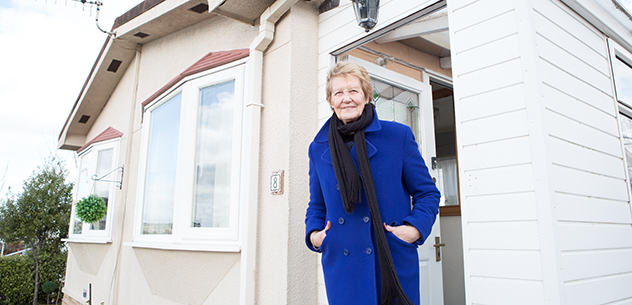Advance care planning

We’re likely to live around a fifth of our lives with some form of ill health. Making sure our loved ones know how we wish to be cared if we become frail helps them make the right decisions if you're later not able to let them know.
The Covid-19 pandemic has made a lot of us think more than ever about what’s important to us. Sadly, many people have died during the pandemic. We’ve heard how some people across Wales haven’t been able to have the end of life care they wanted for their final journey; and for some, how difficult it’s been for people to get the care they needed during the pandemic crisis.
Nationally, work is being done to try to prevent the scale of this issue ever happening again. But there are some things we can all do to plan for later life that can give us peace of mind. That our wishes and wants are planned for if we become frail or ill.
Having a conversation about your wishes
Thinking about this and talking to our loved ones can be difficult, but it doesn’t need to be. Ensuring that your loved ones know your wishes can be empowering for you and can take a lot of stress away for them.
These conversations can be hard, but the following suggestions may help:
- Let your family know ahead of time what you want to discuss so the conversation doesn't take them by surprise
- Choose a time and place where you won't be disturbed or rushed
- Don't worry about trying to cover everything in one conversation
- Consider writing notes beforehand about what you want to discuss to ensure you cover everything you want to
- Don't feel embarrassed if any of you get emotional. Be honest and talk about all your feelings, not just the positive ones
- Family and friends can be reluctant to have these conversations - perhaps they don't want to think about you like this, or they're worried about saying the wrong things. It might reassure family and friends to tell them that it would help you to talk.
Remember there is no right or wrong way to start these conversations. Choose the people you want to talk to, and only share as much information as you feel comfortable with. And if you don't want to talk, that's OK too.
Advance decisions
‘Advance decisions’ or ‘living wills’ are used to document what we want to happen if we’re not able to communicate our own decisions. For example, if you’re unconscious or have developed dementia. It allows you to say if you want to refuse some parts of medical treatment in the future. Putting advance decisions in place helps make sure your loved ones know what to do if you can’t tell them yourself. And if you change your mind about anything, you can change it at any time.
Power of attorney
A ‘power of attorney’ is a legally recognised document that lets someone make decisions on your behalf if you’re no longer able to make those decisions yourself. A power of attorney doesn’t have to be for ever – it can be a temporary arrangement if, for example, you need someone else to pay bills with your money whilst you are in hospital for treatment.
Wills
To make sure your wishes are acted on, making a will is vital. If you die without a valid will your money and possessions may not go to the people, you want them to.
You’ll want to think about how much is in your estate; whether there are any debts to be dealt with, who you want your assets to go to and who you want to be the executors of your will.
There are several ways to draw up a will. You could do this through a solicitor, a professional will-writing service, charities that offer this service, your bank, or you could draw up your will yourself. A will is a legal document, so it needs to be written and signed correctly. Not all will-writing services are regulated and some charge considerable sums for their services, so you may wish to check these things first.
More information
You can find further information on advance care planning in our factsheet
